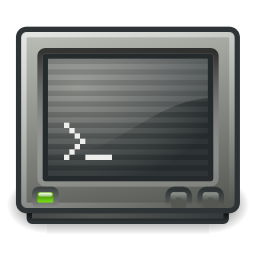Difference between revisions of "Kat5200"
| Line 64: | Line 64: | ||
===Running Game Files=== | ===Running Game Files=== | ||
kat5200 can be run from the command line or from a windowed environment. It will start with the last rom image run or with the GUI if no rom image found, no BIOS found, or if specified from the GUI. | |||
Basic Usage (Command Line): | |||
kat5200 [ -options value] rom_file_name | sql_file_name | |||
The setup and control of the program is performed via the kat5200.db3 sqlite database file. On a Windows system, this file is located in the User’s application data directory. This is something like C:\Documents and Settings\user\Application Data in XP. On *nix systems it will be searched for in the user’s home directory first (as .kat5200/kat5200.db3), then in /etc/kat5200. In General, configuration settings are edited through the GUI menus but can be overridden through command line options (see the options below). Also note that SQL files are accepted and are run against the database. | |||
===Command Line=== | ===Command Line=== | ||
Latest revision as of 13:56, 29 May 2017
Emulated Systems: Atari 5200
Emulator last updated: 18/02/17
Current Official Version: 0.7.1
Overview
Development and History
Variants and Forks
Alternative Emulators
QuickStart
Installation
Download Locations
Pre-requisites
Hardware Considerations
Installation Process
Setup
General Settings
BIOS
Available Plugins
Graphics
Audio
Controllers
Netplay/Network
Operation
Hotkeys
User Keys (settings can be overidden in the GUI):
ESC - Quit the current emulation and go to GUI
ALT-F4 - Quit the program.
F1 - Enter debugger
ALT-ENTER - Toggle Fullscreen
ALT-s - Take screenshot
ALT-1 to ALT-9 - Load state from slot 1-9
SHIFT-1 to SHIFT-9 - Save state to slot 1-9
Running Game Files
kat5200 can be run from the command line or from a windowed environment. It will start with the last rom image run or with the GUI if no rom image found, no BIOS found, or if specified from the GUI.
Basic Usage (Command Line):
kat5200 [ -options value] rom_file_name | sql_file_name
The setup and control of the program is performed via the kat5200.db3 sqlite database file. On a Windows system, this file is located in the User’s application data directory. This is something like C:\Documents and Settings\user\Application Data in XP. On *nix systems it will be searched for in the user’s home directory first (as .kat5200/kat5200.db3), then in /etc/kat5200. In General, configuration settings are edited through the GUI menus but can be overridden through command line options (see the options below). Also note that SQL files are accepted and are run against the database.
Command Line
‘-debug’ Start the program in debug mode.
‘-width’ Width to use in windowed mode or desired fullscreen width
‘-height’ Height to use in windowed mode or desired fullscreen height
‘-fullscreen value’ FullScreen: 1 for Yes, 0 for No. Video mode is independant of this setting.
‘-widescreen value’ Widescreen: 1 for Yes, 0 for No. Shows extra pixels on left and right.
‘-zoom value’ Zoom can be 1-3 and the video screen will be scaled by the value.
‘-mouse_speed value’ Mouse Speed can be 1-5 with 3 as the default.
‘-sound value’ Sound: 1 for On, 0 for Off.
‘-throttle value’ Speed throttling in percent (0 for full speed).
‘-start_with_gui value’ Start the emulator with the GUI: 1 for Yes, 0 for No.
‘-start_gui_with_launcher value’ Start the GUI with Launcher: 1 for Yes, 0 for No.
‘-system_type value’ This is PAL or NTSC.
‘-basic_enable value’ Enable BASIC in the 8-bit mode: 1 for Yes, 0 for No.
‘-sio_patch value’ Enable the SIO Patch in the 8-bit mode: 1 for Yes, 0 for No.
‘-machine_type value’ This can be 800/800XL/800XE/5200.
‘-state profile’ This loads up the entered state profile.
‘-quick_state value’ This loads up the quick state, value can be 1-9.
